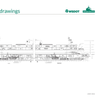Giant oil companies are going to be the sole survivors in an increasingly competitive market, the chairman of Atlantic Richfield told stockholders Aug. 30 as they approved a takeover bid.
Shareholders of Los Angeles-based ARCO, the seventh- largest U.S. oil company, agreed to a sale of the company to BP Amoco Plc, in a $29 billion stock swap that creates the largest private-sector oil producer in the world.
Chairman and Chief Executive Mike Bowlin told a crowd of more than 400 shareholders, mostly retirees of ARCO, that tighter competition and volatile industry conditions spurred the proposed sale. "Two events in 1998 caused the board to reevaluate the future of the company and that was the consolidation of the market and crude oil prices at their lowest levels in...years," he said.
He said a marriage with BP Amoco was the "only way to make substantial reductions in cost structure," necessary to access state-of-the-art drilling technology and compete with a growing club of super-majors.
"I believe the super-majors are the only ones able to obtain the highest return on their investments," he added.
BP Amoco, for example, has estimated saving 80 cents from the operating costs of each barrel of Alaska crude oil produced, once ARCO's operations are incorporated, he said.
"I have no second guesses and no regrets at all about the transaction or the timing of the transaction," said Bowlin, when asked if waiting for the rebound in oil prices would have fetched a better sale price.
Still awaiting regulatory approval - like the BP Amoco-ARCO deal - is the merger of Exxon Corp. and Mobil Corp., which will create the world's largest oil company. The Exxon-Mobil merger has already been approved by shareholders.
The U.S. Federal Trade Commission and European regulatory bodies are expected to approve the BP Amoco-ARCO deal by year's end. BP Amoco has said it will divest Alaska assets if asked, and has pledged to keep ARCO's low-price gasoline policy on the West Coast.
Sponsored Content
MSC Sets a New Standard for Time Off in 2025, Plus Earn a $44,345 Bonus as an Able Seaman!

The Future of the Advanced Measurement Industry: A Vision of Precision, Safety, and Reliability

August 2025
 Read the Magazine
Read the Magazine

 Read the Magazine
Read the Magazine
This issue sponsored by:

Internal & External: Inland Barge Industry Powers the U.S. Economy
Subscribe for
Maritime Reporter E-News
Maritime Reporter E-News is the maritime industry's largest circulation and most authoritative ENews Service, delivered to your Email five times per week








